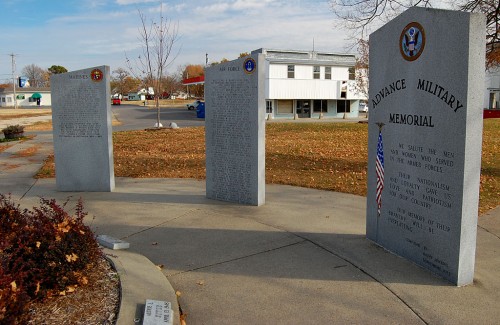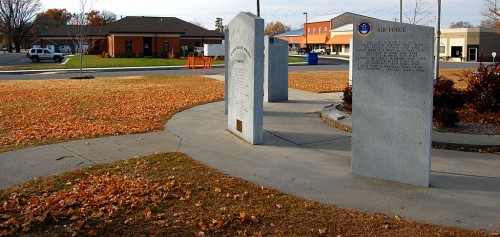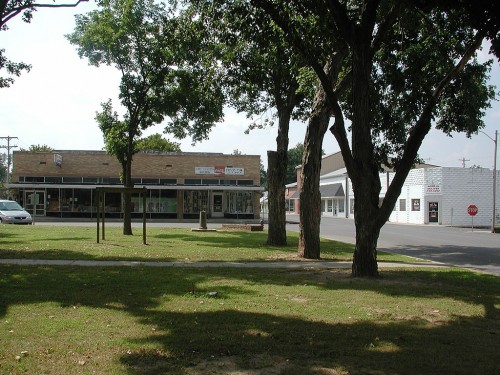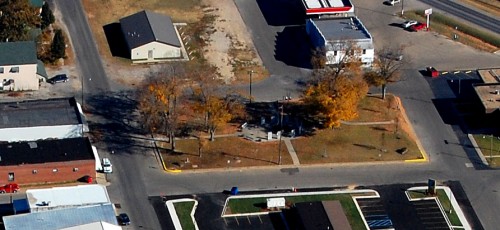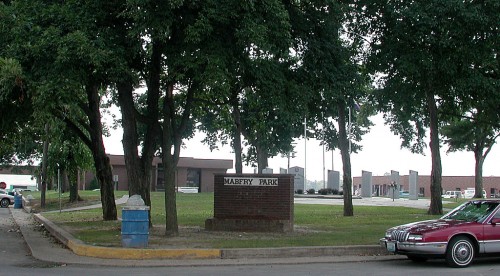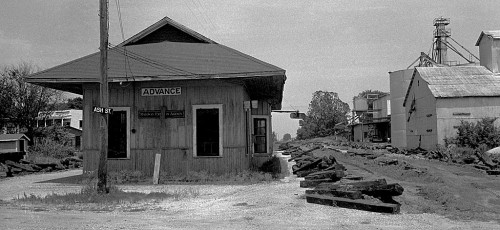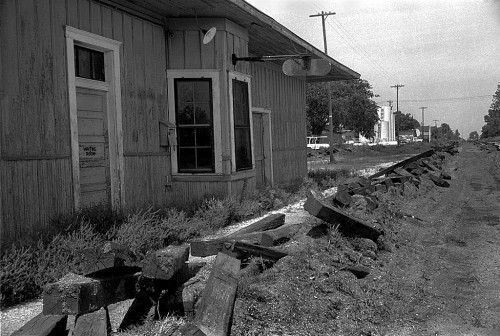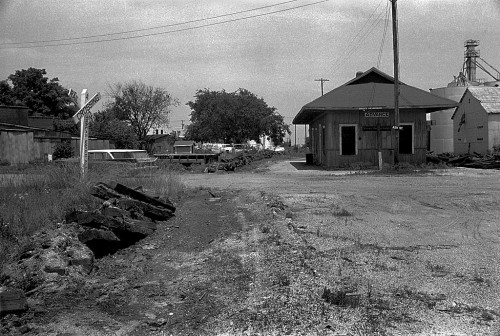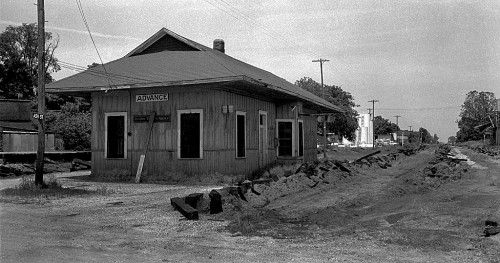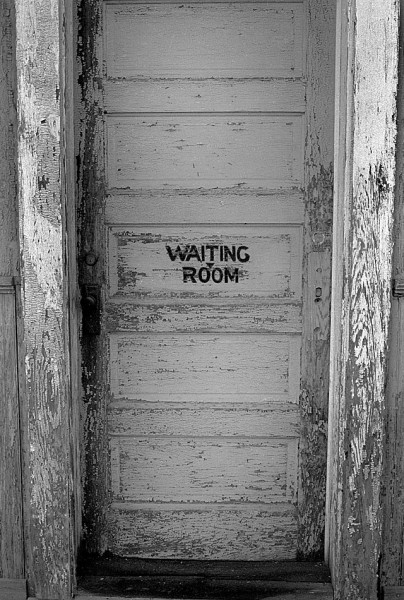 I bet you thought I was going to write about my mother, since it’s Mother’s Day. Well, she certainly deserves it. If I got my work ethic from my father, then I got my spirit of inquisitiveness and adventure from Mother. Where did SHE get it?
I bet you thought I was going to write about my mother, since it’s Mother’s Day. Well, she certainly deserves it. If I got my work ethic from my father, then I got my spirit of inquisitiveness and adventure from Mother. Where did SHE get it?
Elsie Adkins Welch
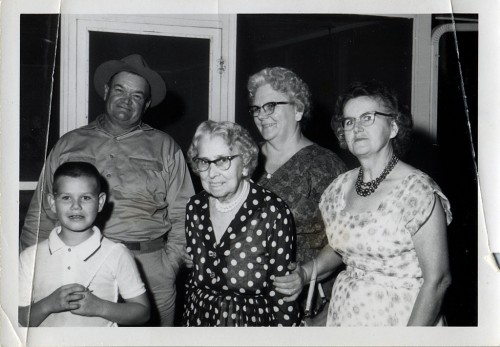 She got it from HER mother, Elsie Adkins Welch. My grandmother was a petite woman, who was almost always perfectly coiffed and neatly dressed. She was an inveterate clipper of poems and inspirational pieces that she would work into speeches and letters. (She’s in the middle of this photo.)
She got it from HER mother, Elsie Adkins Welch. My grandmother was a petite woman, who was almost always perfectly coiffed and neatly dressed. She was an inveterate clipper of poems and inspirational pieces that she would work into speeches and letters. (She’s in the middle of this photo.)
Grandfather loved fishing and cigars
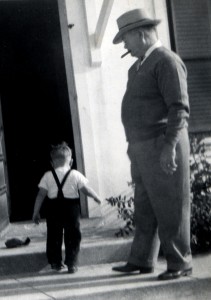 My grandfather, Roy, was an short, portly, amiable man, who loved to fish and puff on Roi Tan cigars.
My grandfather, Roy, was an short, portly, amiable man, who loved to fish and puff on Roi Tan cigars.
When he moved in with us after his health failed, I asked him why he never looked at any of the fishing magazines I subscribed to, preferring, instead, to devour murder mysteries.
“If I read about fishing,” he said, “it would only make me want to go fish. I can read a murder mystery without wanting to go out and kill someone.”
Roy didn’t like to drive. Truth be told, he wasn’t very good at it. My grandmother, on the other hand, would do things like take off on a 10-day tour of the West with three of her buddies. (More about that later).
This Is Your Life
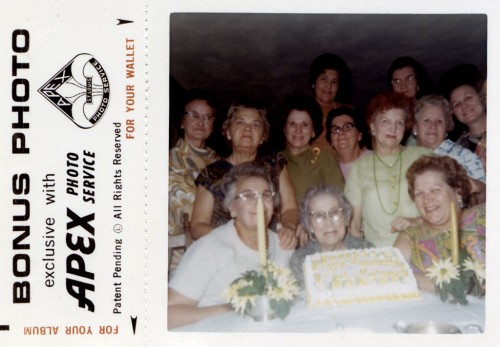 Gran, as we called her, was active in Eastern Star, was a Worthy Matron and founded a chapter of Past Worthy Matrons. June 4, 1962, the group recognized her with a This Is Your Life program. I think Anna Bidewell was responsible for putting together most of this information, although margin notes make it look like several other women either helped or read portions of the program. With only a few notes from me, here is my grandmother’s life as told by her friends.
Gran, as we called her, was active in Eastern Star, was a Worthy Matron and founded a chapter of Past Worthy Matrons. June 4, 1962, the group recognized her with a This Is Your Life program. I think Anna Bidewell was responsible for putting together most of this information, although margin notes make it look like several other women either helped or read portions of the program. With only a few notes from me, here is my grandmother’s life as told by her friends.
Exciting times in Tillman
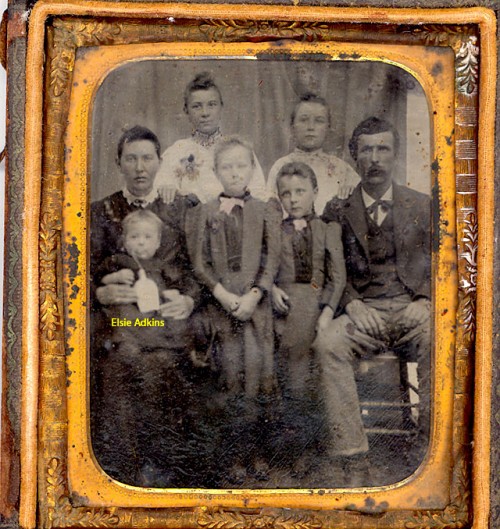 There were exciting things going on in the hills of a little town named Tillman on the morning of Sept. 24, 1892. On this fall day was when Elsie Lee was born to Willis and Mary Adkins. This was a house full of girls, because this made five, with Chloe, Ollie, Pearl and Iva.
There were exciting things going on in the hills of a little town named Tillman on the morning of Sept. 24, 1892. On this fall day was when Elsie Lee was born to Willis and Mary Adkins. This was a house full of girls, because this made five, with Chloe, Ollie, Pearl and Iva.
Went to school in Pleasant Hill
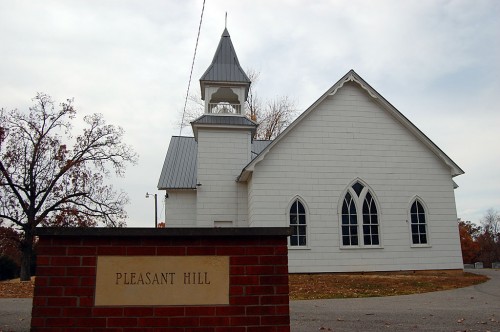 Before long, your father opened a grocery store. Now, the town was growing. This made two stores and a blacksmith shop. In due time, you started school at Pleasant Hill. One of your teachers was a man named Monroe Harris. They say you were a live wire on the playground. You were full of mischief. It’s a wonder those tiny trees ever grew to be big and tall because that was a real good trick to ride the saplings at recess.
Before long, your father opened a grocery store. Now, the town was growing. This made two stores and a blacksmith shop. In due time, you started school at Pleasant Hill. One of your teachers was a man named Monroe Harris. They say you were a live wire on the playground. You were full of mischief. It’s a wonder those tiny trees ever grew to be big and tall because that was a real good trick to ride the saplings at recess.
Polly wants a cracker
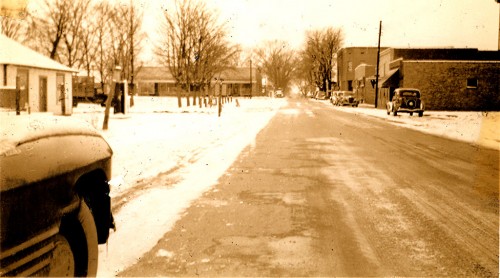 When you were 12 years old, your family moved to the big town of Advance. Your father opened a store across the street from the Advance Flour Mill. There was a parrot usually hanging on the porch in his cage. All we could get him to say was “Polly wants a cracker,” but your mother could get him to say lots of things.
When you were 12 years old, your family moved to the big town of Advance. Your father opened a store across the street from the Advance Flour Mill. There was a parrot usually hanging on the porch in his cage. All we could get him to say was “Polly wants a cracker,” but your mother could get him to say lots of things.
My, how the kids envied the Adkins girls – why, Elsie could get anything she wanted without paying for it because they had a store.
Getting a bonnet in Cape
One of the big events of your early life was to go with your father to the big city of Cape Girardeau to buy supplies. Of course, this was by wagon. On one of these trips you bought a new bonnet at Miss Doyle’s Hat Shop, which was quite a thrill in those days. You finished high school in Advance.
Don’t go to Leopold Picnic
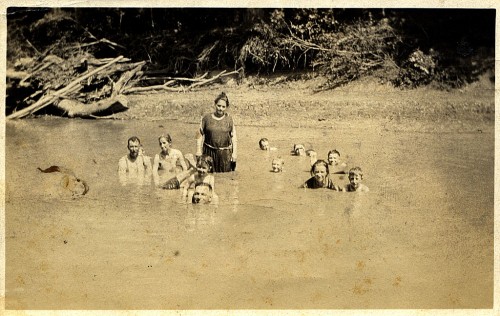 Your father and mother made a trip to Illinois to visit relatives. They gave you firm orders NOT to attend the picnic at Leopold with that young man Roy Welch or you’d really be in trouble when they returned. Later on, you said, “That was the best picnic Leopold ever had.”
Your father and mother made a trip to Illinois to visit relatives. They gave you firm orders NOT to attend the picnic at Leopold with that young man Roy Welch or you’d really be in trouble when they returned. Later on, you said, “That was the best picnic Leopold ever had.”
Decided he could support a wife
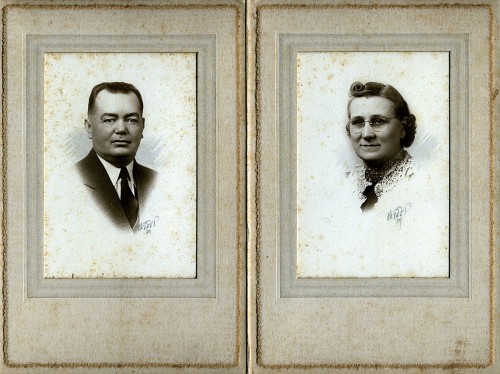 There was a wedding on Feb. 29, 1912. You became the bride of that young man, Roy Welch. He was working at Dr. Cook’s drug store and decided he could afford to support a wife. You left on the noon train to a honeymoon trip to faraway Cape Girardeau and stayed at the hotel near the river.
There was a wedding on Feb. 29, 1912. You became the bride of that young man, Roy Welch. He was working at Dr. Cook’s drug store and decided he could afford to support a wife. You left on the noon train to a honeymoon trip to faraway Cape Girardeau and stayed at the hotel near the river.
You have to CLEAN the chicken?
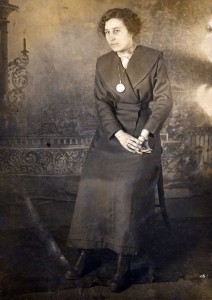 Returning, you took a two-room apartment in the west end of town. One of your first meals was baked chicken. You worked all morning getting everything fixed just right. They say that, as meal time became closer, you began to smell something peculiar. By the time Roy came home, there was no question about the odor. You didn’t know that you were supposed to clean the inside of the chicken as well as the outside. But, with lots of experience, you became an excellent cook.
Returning, you took a two-room apartment in the west end of town. One of your first meals was baked chicken. You worked all morning getting everything fixed just right. They say that, as meal time became closer, you began to smell something peculiar. By the time Roy came home, there was no question about the odor. You didn’t know that you were supposed to clean the inside of the chicken as well as the outside. But, with lots of experience, you became an excellent cook.
At other times, you wanted to prove that you were a real good housekeeper. One day when you were really busy, the neighbors thought it was snowing. On second thought, they knew it was a little late for a snow storm, so they investigated. It was just Elsie emptying the feathers out of the feather bed so she could wash the tick.
On March 25, 1913, a black-headed baby boy was born and named Kenneth Adkins Welch. You thought your happiness was complete. Soon after, you moved to a farm in the Little Vine community. There are lots of stories about the ice cream and watermelon parties held under the trees.
Mary Lee born in 1921
Nine years later, on Oct. 17, 1921, a baby girl was born. She was named Mary Lee, after her two grandmothers.
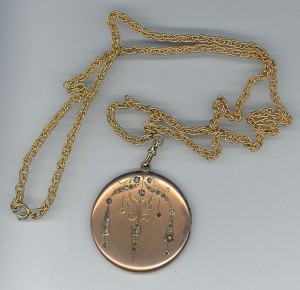 In 1924, you left the farm and moved back to Advance to open a business on Main Street. And, remember the big white house you moved into? With the big screened-in porch, so nice for all the parties, for young and old. We knew we would be greeted with the smell of fresh cut flowers, sweet peas in little crystal baskets here and a pot or geraniums there… they were all over. Everyone enjoyed going to the Welches.
In 1924, you left the farm and moved back to Advance to open a business on Main Street. And, remember the big white house you moved into? With the big screened-in porch, so nice for all the parties, for young and old. We knew we would be greeted with the smell of fresh cut flowers, sweet peas in little crystal baskets here and a pot or geraniums there… they were all over. Everyone enjoyed going to the Welches.
About 1926, you were my Sunday School teacher. You had a class of teenage boy and girls. Each time that I needed you, you would give me you advice. What you said made me stop, listen and think twice.
[Editor’s note: the broach above is the one she’s wearing in the old photo.]
First trip to St. Louis
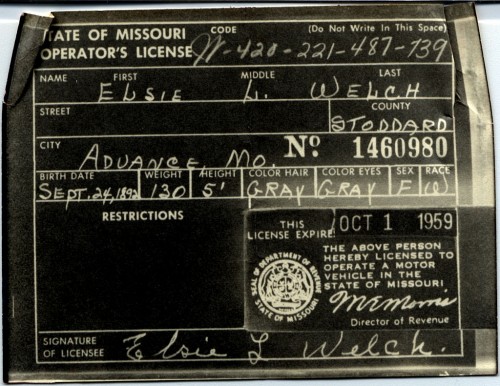 You took me on my first trip to St. Louis. Remember how we had to get out of the little Ford and walk up Null Hill? Felt like we were going to roll backwards down that mountain, but felt real good when we got to the top. After reaching the top, we climbed into the car again and went on our way, counting and taking down notes on the names of every little creek and bend in the road. This wasn’t a trip; it was a journey.
You took me on my first trip to St. Louis. Remember how we had to get out of the little Ford and walk up Null Hill? Felt like we were going to roll backwards down that mountain, but felt real good when we got to the top. After reaching the top, we climbed into the car again and went on our way, counting and taking down notes on the names of every little creek and bend in the road. This wasn’t a trip; it was a journey.
Things ran smoothly until the year of 1935 when tragedy struck your family in the form of an automobile accident that took the life of Kenneth. Time stood still for awhile.
Mary Lee married L.V. Steinhoff
On Jan. 7, 1942, you gained another son – Mary Lee was married to L.V. Steinhoff. You enjoyed each other very much. You all enjoyed many vacations together. But, some said they doubted if they were filled with as much fun as the one you took with Mabel, Lillian and Daisy.
On Trip to Yellowstone
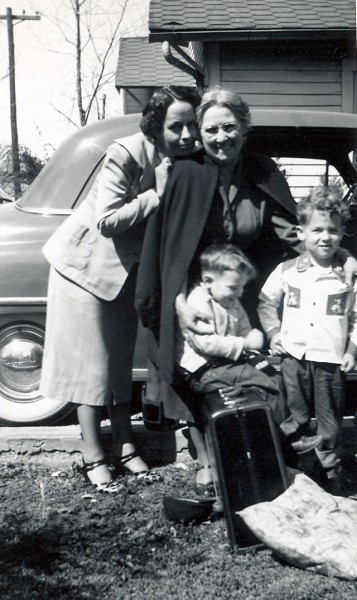 [Editor’s note: I have an undated Missourian clipping that says, “ON TRIP TO YELLOWSTONE.” Leaving Sunday for a ten-day trip through the western states were Mrs. Lillian Ackert, Mrs. Roy Welch, Mrs. H. Zimmerman and Mrs. L.O. Reutzel. They will stop in Denver and Colorado Springs, and Yellowstone National Park in Wyoming.” To say this was unusual in that day and age would be an understatement. I remember crying when they left town because I wanted to go with them, so I had to have been around three, which would have put the trip in about 1950.]
[Editor’s note: I have an undated Missourian clipping that says, “ON TRIP TO YELLOWSTONE.” Leaving Sunday for a ten-day trip through the western states were Mrs. Lillian Ackert, Mrs. Roy Welch, Mrs. H. Zimmerman and Mrs. L.O. Reutzel. They will stop in Denver and Colorado Springs, and Yellowstone National Park in Wyoming.” To say this was unusual in that day and age would be an understatement. I remember crying when they left town because I wanted to go with them, so I had to have been around three, which would have put the trip in about 1950.]
Three Grandsons come along
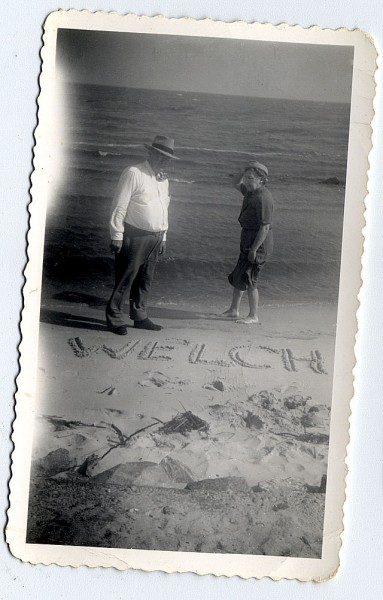 On March 24, 1947, your first grandson, Kenneth Lee was born. He was your pride and joy and still is. Seven years later, David Louis made his appearance. You were still hoping for a granddaughter, but in 1956, another boy came along, Mark Lynn. To you, these are the greatest.
On March 24, 1947, your first grandson, Kenneth Lee was born. He was your pride and joy and still is. Seven years later, David Louis made his appearance. You were still hoping for a granddaughter, but in 1956, another boy came along, Mark Lynn. To you, these are the greatest.
Joined the Eastern Star
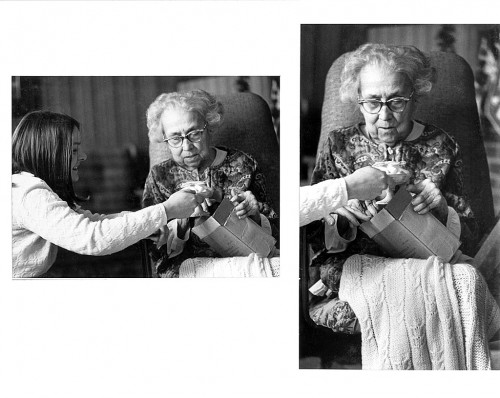 In 1933, when you had some time on your hands, you petitioned the Advance Chapter of the Order of Eastern Star. In 1948, you became Worthy Matron of Advance Chapter 412. This was in the old hall over the bank. I shall never forget the faded wallpaper on the walls and the worn rug on the floor. But, that night, it was sparking clean and the Star Point chairs were all covered in white.
In 1933, when you had some time on your hands, you petitioned the Advance Chapter of the Order of Eastern Star. In 1948, you became Worthy Matron of Advance Chapter 412. This was in the old hall over the bank. I shall never forget the faded wallpaper on the walls and the worn rug on the floor. But, that night, it was sparking clean and the Star Point chairs were all covered in white.
In your acceptance speech, you said in your precise and charming way, “The hall looks just beautiful. Beautiful. The paper doesn’t look faded anymore, nor does the rug look worn. From here in the East, it looks perfect.” Your daughter approached the East that night and presented you with a lovely basket of flowers.
You loved to talk
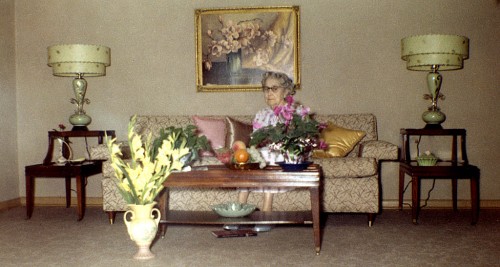 This was an outstanding year for all. You loved to talk and you had many speeches to give, so you had a ball. It was a lot of work, but you enjoyed every minute. Remember getting ready for company night? How hot the fire had to roar to get the old place hot. Tons of flowers were carried into this old hall to make it brighter. You loved to surprise us on chapter night. Remember popping a bushel basket of popcorn and carrying it up the long flight of steps? And, you always remembered our birthdays.
This was an outstanding year for all. You loved to talk and you had many speeches to give, so you had a ball. It was a lot of work, but you enjoyed every minute. Remember getting ready for company night? How hot the fire had to roar to get the old place hot. Tons of flowers were carried into this old hall to make it brighter. You loved to surprise us on chapter night. Remember popping a bushel basket of popcorn and carrying it up the long flight of steps? And, you always remembered our birthdays.
You gave me my first job in the Eastern Star. I was a new member, but I stood meekly in the shadows holding a spotlight on the scenes of This Is Your Life the night Vallie Bollinger was installed as Worthy Matron of the Advance Chapter.
Founded Past Matrons
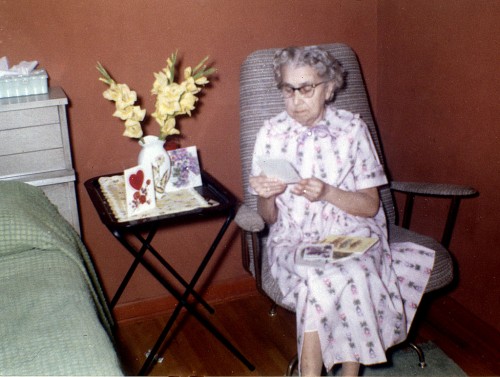 In 1949, you were fast approaching the rank of Past Matron. After much meditation, you began to organize a Past Matrons Club, of which we now claim you as its Mother, not in age, but as its founder. “All thing start from someone’s dream; All things worthwhile were in dreams first seen.”
In 1949, you were fast approaching the rank of Past Matron. After much meditation, you began to organize a Past Matrons Club, of which we now claim you as its Mother, not in age, but as its founder. “All thing start from someone’s dream; All things worthwhile were in dreams first seen.”
In 1955, you retired from active duty because of ill health, and you moved to Cape Girardeau to live with your daughter. But, your family says you are there in body only, not in spirit – Advance is the only home for you.
Roy Welch died in 1957
In 1957, the Death Angel once again visited your home, calling your husband, Roy.
But, with the three grandsons, Mary Lee, L.V. and the old spirit, you still have what it takes, attending our club meetings and Eastern Star whenever possible, even through rain and snow.
So, on this night, we nominate
And to do this I will not hesitate.
You’re a lady of prominence, I might say
Devoted to our Club and beautiful Order every day.
You’ve made a ladder that shall span the sky,
For deeds of love shall never die.
Elsie, This Is Your Life.
Elsie Welch died April 17, 1973
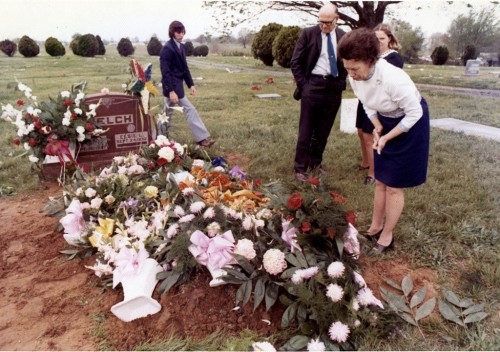 Elsie Welch died April 17, my Dad’s birthday, in 1973. She was a wonderful lady and I miss her.
Elsie Welch died April 17, my Dad’s birthday, in 1973. She was a wonderful lady and I miss her.
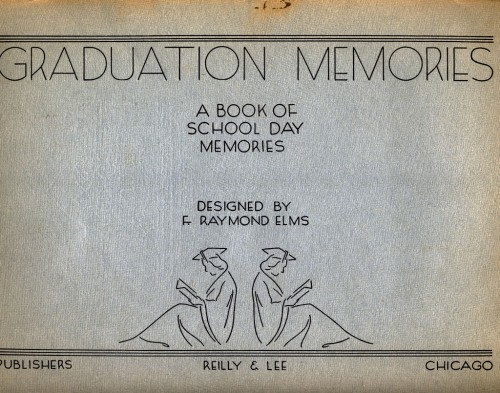 Mother was Facebooking six decades before we gave her an iPad. There’s a new Facebook fan page called Advance Hornet Alumni where all the buzz is about the upcoming high school reunion. Mother graduated with the Class of 1938, the group that named the Hornets, she says. Anyway, she pulled out a scrapbook I had never seen before.
Mother was Facebooking six decades before we gave her an iPad. There’s a new Facebook fan page called Advance Hornet Alumni where all the buzz is about the upcoming high school reunion. Mother graduated with the Class of 1938, the group that named the Hornets, she says. Anyway, she pulled out a scrapbook I had never seen before.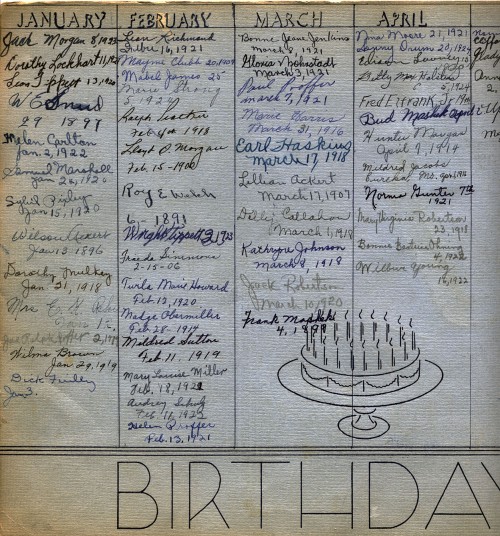 There was a section for Birthdays. I noticed that most of the handwriting was different. “Well, I was just downtown, and whenever I’d see anybody, I’d take down their birthday. Most of them wrote them themselves.” These pages read like a Who’s Who of Advance in the late 1930s. I recognize about a third of the names on these pages. It’s a real thrill to look up to see the signature of your grandfather, Roy E. Welch, [Feb] 6 – 1891, written in his own hand. I’ve seen that writing before and would recognize it anywhere. You can click on any page to make it larger. I scanned them a little bigger than usual if you want to look at the names.
There was a section for Birthdays. I noticed that most of the handwriting was different. “Well, I was just downtown, and whenever I’d see anybody, I’d take down their birthday. Most of them wrote them themselves.” These pages read like a Who’s Who of Advance in the late 1930s. I recognize about a third of the names on these pages. It’s a real thrill to look up to see the signature of your grandfather, Roy E. Welch, [Feb] 6 – 1891, written in his own hand. I’ve seen that writing before and would recognize it anywhere. You can click on any page to make it larger. I scanned them a little bigger than usual if you want to look at the names.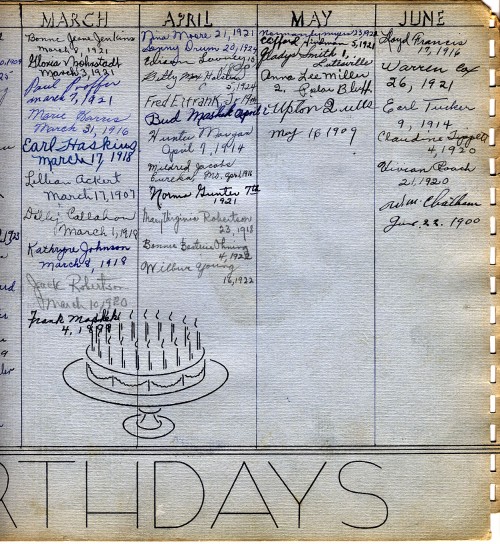 There are contemporaries of my mother, friends of her parents and the high and low of Advance society. Roy and Elsie Welch ran a variety of businesses in town: a hotel, a tavern and a liquor store, among them. Mother could put a head on a mug of beer when she was in her early teens and she managed to hoodwink the sheriff into not confiscating a slot machine full of money when they left her in charge when she was about 13. The businesses, plus living downtown, put her in contact with everyone.
There are contemporaries of my mother, friends of her parents and the high and low of Advance society. Roy and Elsie Welch ran a variety of businesses in town: a hotel, a tavern and a liquor store, among them. Mother could put a head on a mug of beer when she was in her early teens and she managed to hoodwink the sheriff into not confiscating a slot machine full of money when they left her in charge when she was about 13. The businesses, plus living downtown, put her in contact with everyone.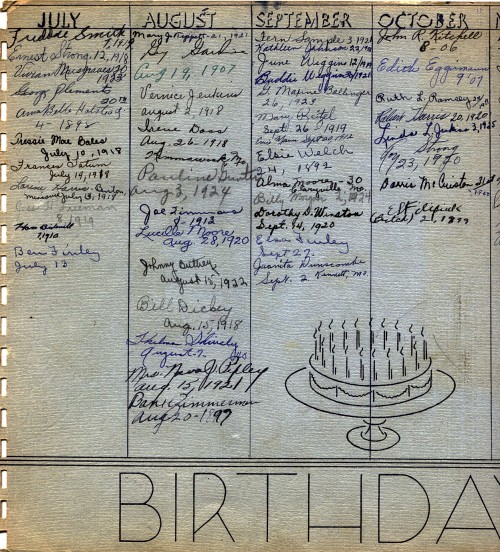 Elsie Welch shows up as Sept. 24, 1892. I recognize her handwriting from the scores of cards and notes she sent me over the years.
Elsie Welch shows up as Sept. 24, 1892. I recognize her handwriting from the scores of cards and notes she sent me over the years.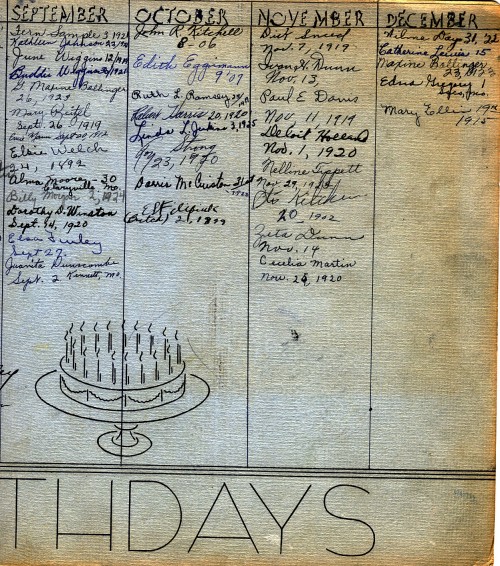 I’ve never been much interested in collecting the autographs of famous people, but I have to admit to feeling a little thrill when I see the handwriting of ordinary people my mother stopped on the street in a tiny town in the Midwest when she was a high school senior. That’s why I said she was creating a Friends list and doing Facebook six decades before she ever got her iPad.
I’ve never been much interested in collecting the autographs of famous people, but I have to admit to feeling a little thrill when I see the handwriting of ordinary people my mother stopped on the street in a tiny town in the Midwest when she was a high school senior. That’s why I said she was creating a Friends list and doing Facebook six decades before she ever got her iPad.
